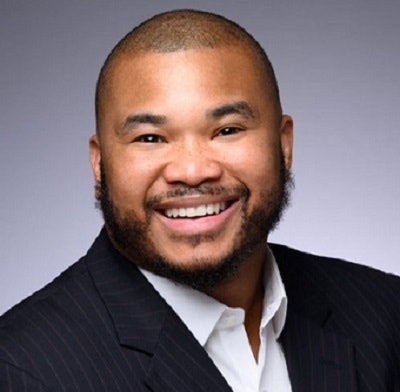Over the past several weeks, an increasingly number of White colleagues and friends have reached out to me inquiring how they can better support Black people. Specifically, they have asked where to donate monies, what to say to show support to their Black colleagues, and what books they should read. Of these, the latter has been among the most recurrent question I have been asked.
I preface this list with the notion that the Black Lives Matter movement, from my perspective as a Black man, is not only about issues of policing. Black people experience violence in all aspects of their lives. Certainly, Black people experience violence at the hands of law enforcement and those in positions of authority. The deaths of Eric Garner, George Floyd, Tony McDade and Sandra Bland demonstrate this. Yet, Black people also suffer from more subtle forms of violence through their constant mistreatment in healthcare, education, as well as business and industry. Given this, here are five books that every White ally should read on Black lives.
How to Be an AntiRacist by Dr. Ibram X. Kendi
Dr. Ibram X. Kendi is regarded as one of the nation’s foremost scholars on racism and anti-racism. Kendi is the author of a number of books and recently announced that he is leaving American University to join the faculty at Boston University. In this book, Kendi shares elements of his own personal story with racism and addresses what it means for people to transition from being racist to anti-racist. In exploring these notions, he offers compelling ideas about concrete actions that must be taken to create a society that does not profit and benefit by exploiting Black peoples and communities. He draws in powerful metaphors about the similarities between cancer and the mistreatment of Black people in American society. The book can be found here.
 Dr. Adriel A. Hilton
Dr. Adriel A. HiltonBlack Minds Matter: Realizing the Brilliance, Dignity, and Morality of Black Males in Education by Dr. J. Luke Wood
In the wake of the shooting death of Alfred Olango, an unarmed Black man in San Diego, Dr. J. Luke Wood and numerous colleagues offered a widely attended free online course called “Black Minds Matter.” The course focused on the relationship between the policing of Black lives and the schooling of Black minds, addressing topics such as the school to prison pipeline, over-placement in special education, and disproportionate suspensions and expulsions. Following the course Wood, who is a Distinguished Professor at San Diego State University, released a book encapsulating thoughts and themes from his lectures and personal stories about his own challenges as a Black male. The book offers a framework for educators who want to enhance their ability to serve Black boys and men in education. The book can be found here.
When They Call You a Terrorist: A Black Lives Matter Memoir by Patrisse Khan-Cullors and Asha Bandele
This book is a memoir written by Patrisse Khan-Cullors who is a co-founder of the Black Lives Matter movement. In 2013, following the acquittal of George Zimmerman in the shooting of the young, unarmed Trayvon Martin, Khan-Cullors with her colleagues Alicia Garza and Opal Tometi began a social media movement using the hastag #BlackLivesMatter. This movement has continued to expand following the continuous and expanding social unrest in the wake of high profile killings of Black people such as Michael Brown, Eric Garner, and numerous others. Her book, When They Call You a Terrorist discusses the challenges facing the Black community and the activism that led to the Black Lives Movement. She also documents the personal pain and challenges associated with the media portraying her and her colleagues as terrorists for their advocacy against police brutality and murders of Black people. The book can be found here.
No BS (Bad Stats): Black People Need People Who Believe in Black People Enough Not to Believe Every Bad Thing They Hear About Black People by Dr. Ivory A. Toldson.
Many Black people have heard statements asserting that “there are more Black men in prison than college,” “Black students don’t read,” and “Black children fail because single mothers raise them.” In an artfully expressed manner, the book No BS explores common misconceptions, stereotypes, and myths used to put down Black people and dispels them using data. Authored by renowned professor and public intellectual Dr. Ivory A. Toldson, the book dispels common assumptions and provides a more nuanced understanding of the Black experience and appreciation for the power of Black peoples. This is among my most favorite books and should be “required” reading for every White ally in the nation. The book can be found here.
The New Jim Crow – Mass Incarceration in the Age of Colorblindness by Michelle Alexander
In a popular and powerfully crafted book, Union Theological Seminary professor Michelle Alexander discusses the impact of the criminal justice system on the Black community. In this book she provides detailed insights into how government policies led to the high rate of involvement of Black people, particularly Black men, in the criminal justice system. The book provides an understanding of disparities at every segment of the justice system, from juries, to laws, to political movements (namely the war on drugs) designed to target Black communities. The book can be found here.
These books deeply critique American history, society, and culture in a manner that evokes a desire for change. They also present actions on what can be done to advance our society. Overall, they represent a necessary starting point for allies to demonstrate that Black Lives Matter.
Dr. Adriel A. Hilton is dean of students and diversity officer at Seton Hill University in Greensburg, Pennsylvania.















